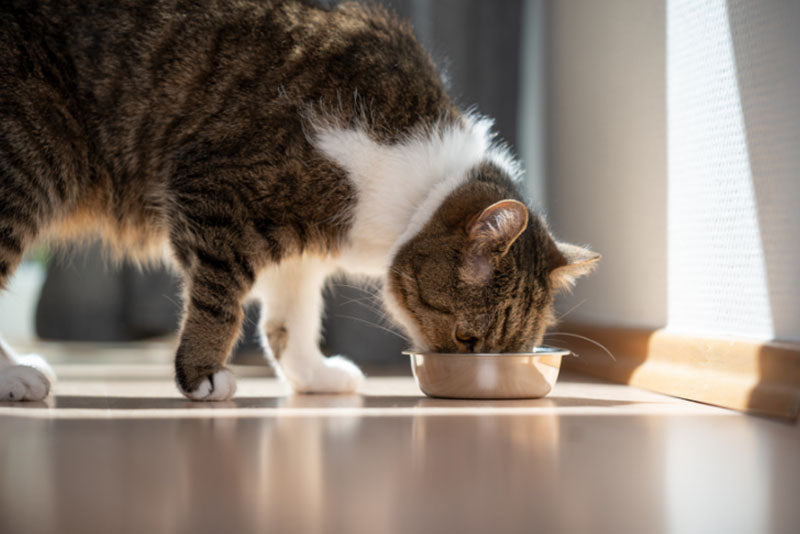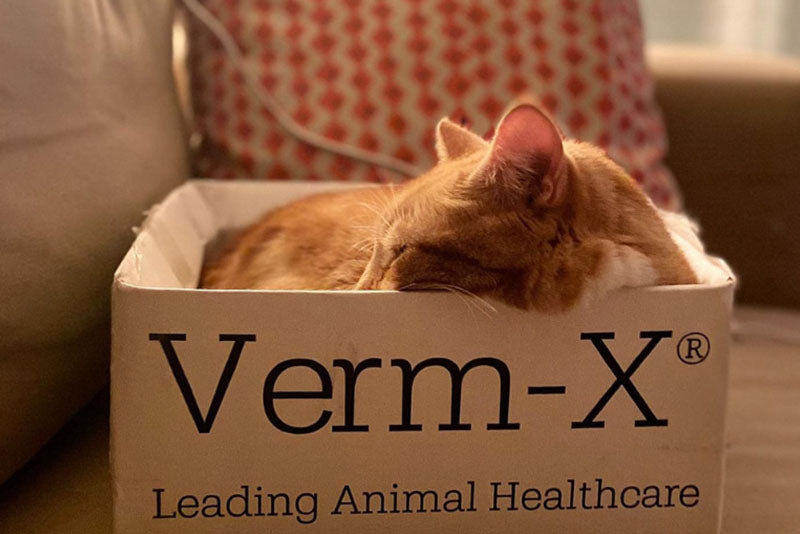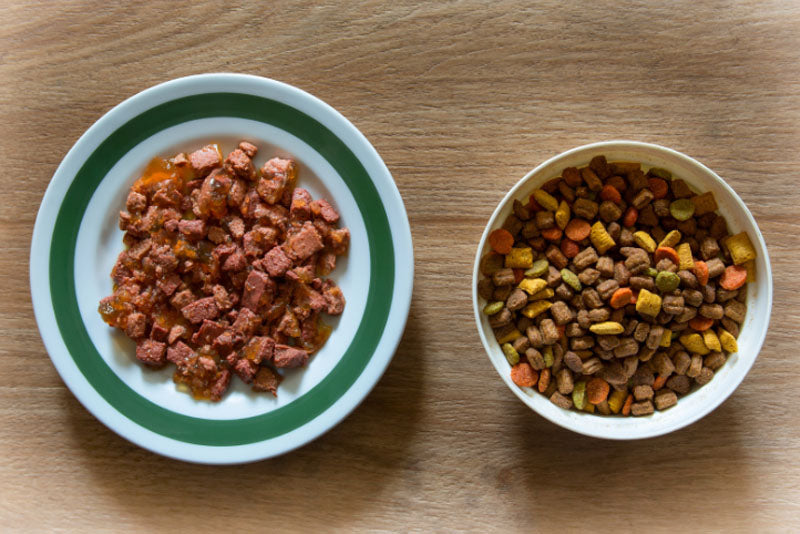Ask a vet: what's the best diet for cats?
Whether you a longtime owner or have newly adopted a cat or kitten, when it comes to keeping them healthy and happy, diet plays an important role.
A well-balanced diet is key to a thriving feline, but with so many options out there, what is the best one for your furry friend?
Once again, we asked our Consultant Vet Dr Nick Thompson for his expert advice:
What kind of diet is best for cats?
In his excellent best-selling 2006 book, The Omnivore's Dilemma, author Michael Pollan discusses the best diet for humans, omnivores. He contrasts the many options available to us humans with herbivores and carnivores.
Sheep and horses thrive on a variety of grasses and herbs. Obligate carnivores (like lions, tigers and domestic cats) are most healthy when eating a varied fresh, raw meat diet.
Since the 1970s, Westerners have fed cats on highly palatable, ultra-processed kibbled and canned foods. This is a problem in many ways.
Is dry food bad for cats?
The most obvious issue is that these industrially manufactured food-like substances promoted by large corporations are not species-appropriate.
Why? Dry kibble biscuits combine meat and bone meal with cereals, are high-pressure, steam-cooked, and then sprayed with fats, minerals, and vitamins (to make up for processing losses).
The resulting mixture technically meets cats' requirements, but it is far from species-appropriate. Domestic cats evolved to eat mice, rabbits, and birds, not high-carbohydrate dry factory food.
What about feeding cats tinned food?
Canned cat foods generally contain fewer starchy carbs because they don't need to hold cute, biscuity shapes only made possible by starchy materials.
However, canned cat food often uses cheap, waste proteins from the human food chain (so-called 'meat and animal derivatives'). These proteins are combined with cereal carbs, high-pressure cooked, balanced to make them 'complete', and sealed in a tin.
Canned foods are better for cats because of their increased water content (cats were originally desert animals, relying on food moisture in an arid environment). But just because cans are wetter and less harmful than kibble doesn't make them right.
Moving your kids from junk food daily to junk food with an apple is better but hardly the yardstick for optimal child development!

What to not to feed your pet cat
Feeding synthetic foods to cats doesn't sound that appealing, but does it affect them in a way we can measure? Let's take Feline Diabetes Mellitus as a possible example.
In 2015, Dr Cecilia Villaverde, a feline medicine specialist at the World Small Animal Veterinary Association World Congress in Bangkok, Thailand, noted, 'data suggest feline DM (Diabetes Mellitus) has been increasing in prevalence in most countries since the mid-1980s'.
A 2016 review of 194,563 cats found the incidence to be almost 0.6% - over one in two hundred cats and climbing.
Several things changed between 1985 and 2015; vaccination rates increased, and the use of pesticides for fleas, ticks, and gut parasites increased, but significantly, so did feeding practices.
How cat food has evolved
Canned foods were almost universal in the '80s.
Nowadays, dry cat foods are the biggest sellers in vet practices, pet stores and supermarkets.
This is a worrying trend - are we making our cats sick by feeding them junk food?
Scientists say 'correlation is not causation'- that is, just because one statistic changes simultaneously doesn't mean one isn't directly causal to the other.
For example, in the USA, beach drownings are correlated with ice cream sales. Ice cream doesn't cause drownings—the link? Summer sunshine.

So, what should cats eat?
If feeding cats junk food is causally linked to Diabetes, then stopping this type of food would reduce or eliminate the disease. This is precisely what we see.
The orthodox approach to most feline diabetes cases is to institute a high cereal fibre diet with 'a low level of mono- and disaccharides' [sugars].' Many cats have to go on daily insulin injections for life.
Feeding you cat fresh food
Holistic and raw food vets have another take on treating this 'incurable' disease. They simply put cats onto a very low or zero-carb diet of raw or lightly cooked meats, bones and organs.
And you know what? The results are spectacular. Most cats will rapidly improve and cure. One busy Irish raw feeding practice claimed to have zero cases of Diabetes among its thousands of cats, where usually there would be about one in two hundred with the disease. They just put all Diabetic cats on raw food.
The old adage that you are what you eat applies very much to our feline friends. There's no surprise there. Hippocrates said, 'Let food be thy medicine'.
I like to think he had cats.

Interested to learn more from Dr Nick?
Ask a Vet: What Vaccinations Do Puppies Need?
Ask a Vet: Why Do Dogs Eat Grass?
Ask a Vet: What Makes Dogs Itch?
Ask a Vet: Can Puppies Eat Raw Bones?
Ask a Vet: Can Dogs Eat Garlic?
Ask a Vet: Is Wormwood Safe for Pets?


